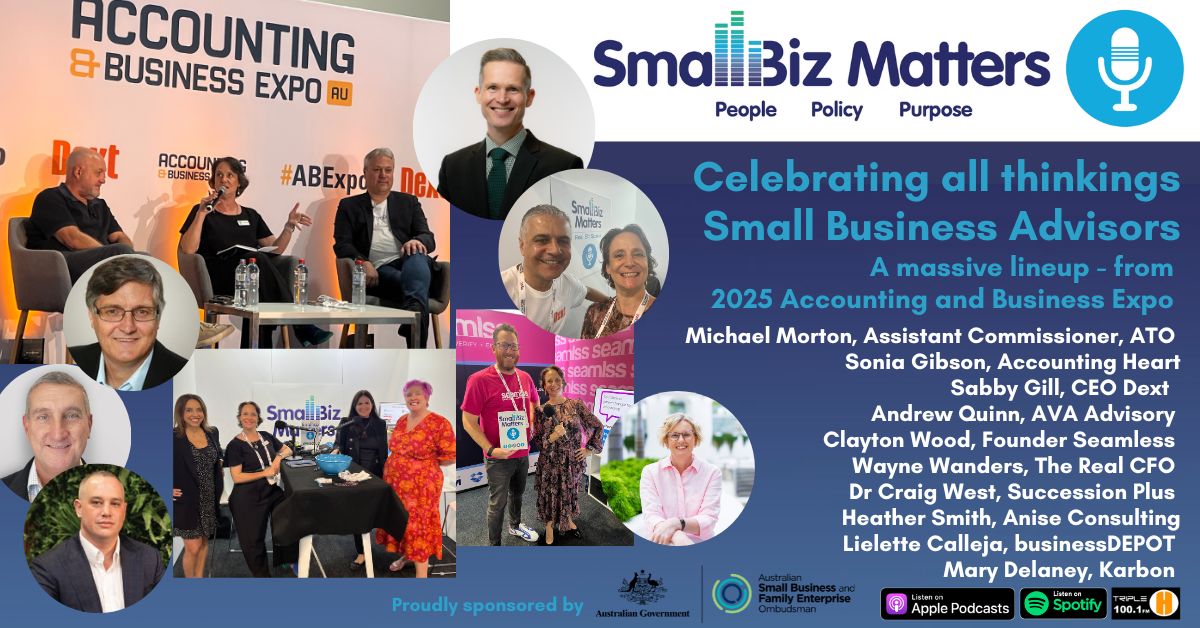Contracts and Your Business - Managing the Risk - 15/8/2017
| Tuesday August 15Small Biz Matters – a half hour program each week where you can work ON your business rather than IN it.
with Alexi Boyd from Boyd Office Management Services
Date: 15 August 2017
Who best to sk than an expert in Commercial Law we welcome to the show Allan McDougall from Key Point Law Firm.
Welcome to the show Allan.
Topics we’ll be covering:
Q: “When do you typically need ‘Engagement Contracts in Business?”
A: You typically need contracts in business when you supply products or services over time, or on-line.
In other words performing the transaction isn’t instantaneous, like paying to have your someone mow your lawn, unless of course it’s a repeating arrangement (but maybe not even then)
Also the product or service you provide is complicated or required to be of a certain standard eg painting the inside of a house
Business Terms & Conditions
So, if you are selling products or services, whether from a physical or digital/online presence, you will need to have a well-drafted set of business terms and conditions.
These standard Ts&Cs can even be displayed on your website. Some large businesses may display not just standard sales terms, but also standard purchase terms as well.
If you provide services you will need a “client agreement”
Client Agreements set out the services you provide your client and on what terms.
This agreement will include information on your obligations, your client’s obligations, as well as standard provisions to limit your liability (risk) and protect your legal interests
If sell products (things) you will need a set of sales terms & conditions.
A set of sales Ts&Cs covers similar things to a Client Agreement, as well as your delivery, repair and exchange policies.
The sales Ts&Cs should also ensure that, as a supplier of goods you are complaint with product quality laws
(Talk about the Australian Consumer Law and recent “B2B unfair contract” amendments)
Online market place term and conditions
If your website allows parties to buy and sell products, services or even information you will need a set of Ts&Cs to facilitate transactions on your marketplace/website platform.
Website marketplace Ts&Cs need to be a little more comprehensive than the other two sets of business Ts&Cs, because they must protect your website platform as well
2. Contract with employee or contractor
Yu should always have a written contract of employment with all award employees, and probably management employees as well.
For the sake of good order probably casual employees too, although the contract will most likely be briefer
These agreements will set out things like the role of the worker, their remuneration and benefits, any leave entitlements, and what expectations you have of them
And for the award employees a written document is a way of proving to the Fair Work Ombudsman for example that you are observing the conditions of the award, should that ever become necessary
As regards a contractor you will need to make clear their independence of the cso that you are not responsible for his on-costs, and that he/she is a genuinely independent agent
3. Shareholders Agreement
If your business is in a company and you have shareholders other than immediate family then hopefully you have Shareholders Agreement in place.
Sets out what each shareholder’s role in the company is, what their duties and obligations are, how profits are divided, how a shareholder can exit, and generally what happens if something goes wrong
A kind of a business “pre-nup”
4. Buying or Selling a business
If you engage a lawyer this will generally cost a lot. Sometimes you will think the final amount is out of proportion to the sale price. I often say the more you’re paying or getting the better it is to engage a lawyer.
Even if it’s for a small sum you at least get peace of mind with a lawyer being involved.
To save money involve your accountant from the word go, and negotiate as much as you can with the person buying or selling.
Really get all the commercial details settled, including doing a “due diligence if you are the buyer
There is a standard form contract, similar to the real estate version, but I think it’s a waste of time, except perhaps for the smallest business.
5. How detailed do theses contacts need to be?
Their level of detail depends on how complicated your products and services are.
Generally one A4 page, with two columns of small type size should suffice.
Note though that the font cannot now be too minute otherwise the contact may be deemed to be unfair, under the new laws
Why is it better to seek advice rather that downloading from the internet?
You take a risk that anything on the internet might not be truly suitable for your purposes.
Also I notice that many of the ‘free” documents on the internet are from American of UK law firms which are quite different from what we use over here and are sometimes alarmingly uncomplete.
Very much a case of buyer beware
Also from the internet you can buy contracts and legal documents for various purposes but you still take a risk that you know what you are doing.
I see that from some sources you can pay substantially extra for legal interpretation and advice to accompany the purchased document. From what I can tell the advice is Ok, but I only know that because I’m a lawyer!
I think you are better off delegating this task. Your time is better spent working on or in your business
7. If you engage with a commercial lawyer like me, how can you expect the meeting to go.
Well, firstly it is my practice to give you the first hour free so you can explain your needs and try to give you an estimate of what it will cost.
Maybe I will need to go away and think about it, then get back to you, but an estimate you will get.
If you like how the meeting went and the number I come up with then I will send you a fees agreement setting out that estimate. If you are happy with that you tell me and we can proceed.
At the beginning of the show Alexi you mentioned that we lawyers charge by time at hourly rates. That’s usually the case where we can’t control the amount of time we spend.
For example, in a court case, a dispute situation or where we have to negotiate with another lawyer.
For myself, about all I can do is keep you fully informed in those circumstances. Court matters are particularly h problematic.
8. When is the best time to engage a lawyer?
When you’ve agreed all the important bits with the other party and you’ve personally resolved to go forward.
Also you’ve been talking to your accountant in detail and you know the numbers look OK.
9. How can you minimise the costs?
Do your homework:
if selling, be realistic about what you are letting go and what you want in return
if buying, do you DD early and thoroughly.
Allan McDougall
Principal
Keypoint Law
To find out more go to their website: http://www.keypointlaw.com.au/





